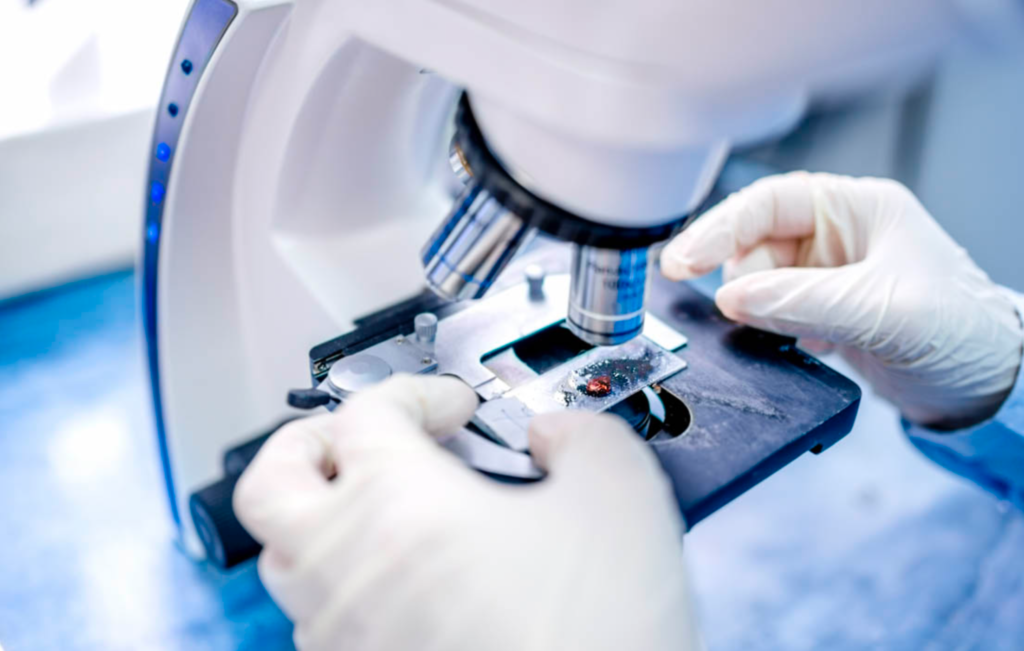CONTACT
We will reply as soon as possible.
Enevia Health, LLC
30 N Gould Ste N, Sheridan, WY 82801, USA
The mineralogram is a specialized non-invasive study with high sensitivity to measure the values in our body of minerals and trace elements, which give us an early and recent diagnostic value. In other words, the data reflected in the mineralogram give us an indication of the deficiencies or excesses in our body, and in this way correct the cause, restoring balance to our internal environment.
A mineralogram is ideal as a biometric indicator, in this way we can investigate the intracellular metabolic processes, unlike the blood analysis that are also biometric indicators but of the transport of minerals, that is to say the mineralogram is an indicator of intracellular functioning and the blood element and/or electrolyte test is an extracellular indicator.
Many of the nutritional deficiencies in many countries, especially in the child population, are based on deficiencies in fat-soluble vitamins A and D, iron, ferritin, and some trace elements such as zinc and copper. These deficiencies are one of the factors that intervene mainly in low growth percentiles and psychomotor child development.
However, deficits by macro and/or microelements are under-diagnosed due to the low implementation of tests in both public health services and private health services.
There are a multitude of molecular functions of metallic elements in our body, and for many years researchers have searched for a scale of redistribution to understand the molecular functions.
There are so many functions, so many proteins, so many enzymes in different organs, in different cell receptors. It is an extensive, meticulous and hard task in which we can in some future understand the entire tree of biochemical processes that our body performs.
In a nutshell Minerals are nutrients that keep our body healthy and in balance and that we require in small amounts compared to macroelements such as carbohydrates, lipids, and proteins. And they are considered micronutrients like vitamins; the difference is that minerals are inorganic molecules and vitamins are organic molecules.
We can easily classify them as essential for human metabolism and toxic for our body, so we have:
Our body needs them in amounts greater than 100 mg per day, such as:
When the deficiency is mild it is usually asymptomatic, but being a moderate deficiency we can begin to show symptoms such as cramps, muscle weakness or muscle spasms, fatigue, irritability, sporadic tingling. In severe cases some of the symptoms are muscle cramps, confusion and tingling in the lips and fingers.
Some of the symptoms of phosphorus deficiency (hypophosphataemia) are loss of appetite, anemia (low red blood cell count), muscle weakness, coordination problems, bone pain, weak bones, bone malformations, increased risk of infection, burning or itching (pruritus). in the skin and can even lead to confusion in severe deficiencies
Low levels (hyponatremia) can cause certain symptoms such as nausea, dizziness, thirst, headache, confusion, and fatigue. Added to other symptoms in moderate to severe deficiencies such as a neurological state of lethargy.
Some of the symptoms in potassium deficiency (hypokalemia or hypokalemia) are constipation or constipation, palpitations, fatigue, muscle pain, muscle weakness and spasms, tingling sensation or numbness, sometimes you may present spontaneous muscle stiffness.
Chlorine deficiency (hypochloremia) can cause symptoms such as weakness, dizziness, muscle spasms, headache, nausea, vomiting, fatigue, hypotension. In severe cases it can reach a tetanic state.

A magnesium deficiency (hypomagnesemia) generates certain symptoms in mild deficiencies such as abnormal movements of one or both eyes (nystagmus), fatigue, muscle spasms, muscle weakness, numbness or tingling, sweating; in moderate deficiencies it generates convulsions and cardiac arrhythmias.
Sulfur deficiencies cause problems in the synthesis of collagen, which causes growth retardation in childhood and difficulty in tissue regeneration in adults. You can also present joint pain, tendonitis, decreased liver function, which may increase the tendency to obesity. It has some effects on the nervous system such as contributing to Alzheimer's disease or worsening its evolution. The consumption of substances with tobacco reduces their absorption at the intestinal level.
Our body requires them in amounts less than 100 mg per day, such as:
Some of the symptoms of iron deficiency are weakness, pale skin that are consequences of consequent anemia. Other symptoms are brittle nails, headache, dizziness, vertigo. In moderate deficiencies it can present arrhythmias, shortness of breath, extreme fatigue.
Fluoride deficiency is rare, it is associated with symptoms such as increased caries, weak teeth and bone weakness, bone pain, arthralgia. In the most chronic and severe cases it can lead to osteoporosis.
Zinc deficiency generates symptoms such as hair loss, decreased or loss of appetite, difficulty in skin regeneration, difficulty concentrating on daily activities. In children it can cause delayed growth and psychomotor development.
In addition, Zinc is a regulator of innate and adaptive immunity, so its deficiencies can generate a deficient immune response. Like the rest of the body, intestinal immunity is key, so a deficiency can cause inflammatory bowel diseases.
Copper deficiencies lead to pale skin, fatigue, decreased immune response, bone weakness and increased chances of fractures, tingling. In moderate cases, anemia, decreased concentration, problems producing collagen are observed. In severe cases there is a low synthesis of neurotransmitters and deficiencies in methylation.
The need for trace elements is in amounts less than 1 mg per day, such as:
It is found in table salt and thanks to this, its deficiency has greatly decreased, which is expressed in neurological development problems, high frequency of abortions and premature births, deaf-mutism, decreased fertility, in children it can cause delayed birth. psychomotor development and growth.
Several of the symptoms are weight loss, confusion, constant loss of coordination and balance, a tendency to hyperglycemia (high blood sugar levels) which increases the risk of suffering from Diabetes mellitus.
Some of the symptoms that can be observed are tachycardia, joint pain, headaches, dizziness, nausea and can even lead to vomiting. In babies it can cause seizures and even encephalopathy.
Selenium deficiency can cause sexual inappetence, fertility problems in men, apathy, anxiety, difficulty concentrating, hair loss, weak and brittle nails, fatigue and general weakness.
Just as there are essential inorganic elements that our body needs and do us good, there are toxic or polluting elements such as:
Each one of the poisonings by these metals generates certain damages in our body and they cover multiple organs, the affinity of the metals to the cellular receptors is wide and some organs can store the metal and later release it.
From here lies the importance of carrying out laboratory controls and medical controls, reducing exposure to metals, using organic products; all in favor of a healthier and more natural life.
The affectation by intoxication is wide and includes many symptoms:
If you have any of these symptoms and you want to clear up your doubts, Enevia Health puts the following mineralograms at your disposal:
An optimal supply of minerals in our diet provides us with a strong immune system, a healthy physical and mental state, and an optimal regenerative capacity.
The Mineralogram will allow you to observe and verify your current state of health and trends in future diseases through mineral analysis. This way we can take corrective measures in the event of any deficiency or intoxication.

The liver is the great metabolizer, although the microbiome in our gastrointestinal tract degrades, metabolizes and forms many useful substances for our body but to a lesser extent compared to the liver. Therefore, it is a very important organ in the management of children with the Autism Spectrum.
The metabolization or detoxification functions in the child with the Austism Spectrum are altered for multifactorial reasons such as alteration or lack of enzymes, amino acids, transporter proteins, blockage or decrease of cellular receptors.
The mineral content is variable according to the origin of each food. In addition, there is a substance that functions as antinutrient and is present in some foods, it prevents the absorption of minerals because they form insoluble complexes with them that precipitate, and in this way they are not absorbed in the small intestine, such as phytic acid present in many vegetables.
This chelating function indiscriminately sequesters minerals, causing significant deficits not only of minerals but also of Niacin (Vitamin B3). Although the phytic acid It has many benefits and is not recommended for people with nutritional deficits, especially in developing or underdeveloped countries.
But our gut microbiome is wise and broad, in our gut are the lactobacilli which have many functions, among which are to hydrolyze these non-soluble complexes of phytic acid with the minerals and thus we will be able to absorb the minerals that we ingest.
In the same way the ascorbic acid (Vitamin C) helps reduce the effect of phytic acid on the iron, thus achieving that we can absorb it. Therefore, a balanced diet without eliminating food groups without nutritional and medical supervision is key to a harmonious balance in our body. But not everything is bad with the phytic acid, there is still research that supports its effect in reducing oxidative stress in the intestinal lumen, and intracellularly it is a DNA repair cofactor. Therefore, solving nutritional deficits first is key, to include it in our diet and thus have a healthier and more balanced life.
Information source: Autism Research Institute. https://scholar.google.co.ve/scholar?q=Autism+Research+Institute.&hl=es&as_sdt=0&as_vis=1&oi=scholart
📌 You will find more scientific information on the different Enevia Health platforms.
Website: https://www.eneviahealth.com
Youtube: https://www.youtube.com/c/EneviaHealthSL
Facebook: https://www.facebook.com/eneviahealth.
Instagram: https://www.instagram.com/enevia_health/
#autism #neurodevelopment #infant neurodevelopment 1TP4Infant tautism #autismspain #eneviahealth
We will reply as soon as possible.
30 N Gould Ste N, Sheridan, WY 82801, USA
Our groups are the ideal platform to learn and share your scientific concerns about neurodevelopment issues
*Our purpose is informational only, it is not intended to be a substitute for medical advice, diagnosis or treatment.
We are working on our website. For any queries, you can contact our customer service team at atencionalcliente@eneviahealth.com